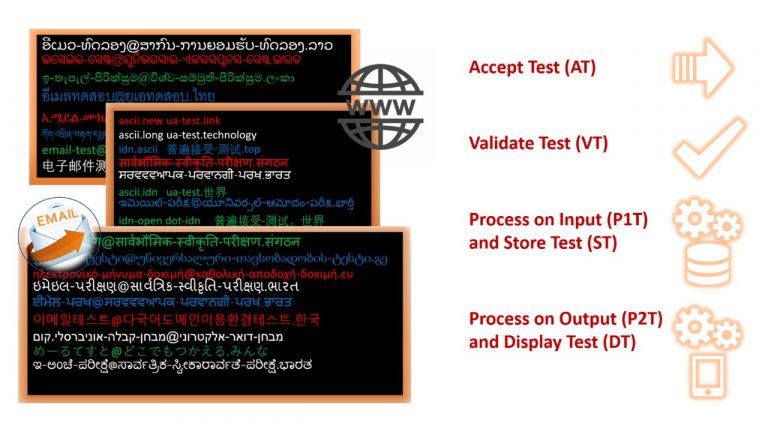Universal Acceptance
The Internet has become all pervasive and has become a part and parcel of our lives. We all have witnessed the power of the internet more specifically in the pandemic, which helped us to stay connected as well as do business as usual. As of Jan 2021, the global active internet user stands at 4.66 billion while 90-95% consumption of internet is from social networking usage alone.
The convergence of AI (Artificial Intelligence) and IoT has redefined the way industries, business, and economies function. Speech to speech technologies, facial recognition, virtual assistants, Machine translation systems, natural language processing, natural language generation and many more are now growing part of our lives and help dissolving language barriers.
50 billion devices expected to get connected in 2022, within 50 years we will have the technology for embedding internet transceivers into human brains, and that by 2069 the brain-machine interface will be fully developed, wherein the internet ecosystem will be catalytic to human advancement. The residential internet speeds will be touching 10 gigabits per second – 10 times faster than today’s networks.
Multilingualism becomes an extremely crucial aspect to bring the next one billion users on the network. There are 7,000 languages and dialects used across the globe.
In India we have 22 scheduled languages, and we have one to many and many to many relationships between the scripts and languages. As an example, Devanagari script alone covers 8 official languages, such as Hindi, Marathi, Konkani, Boro, Nepali, Santali, Sanskrit, Sindhi while Sindhi is written in Devanagari as well as Perso-Arabic script
The next billion Internet users will likely come from non-English speaking countries, providing access for these users will require more than supporting internationalized or multilingual content. Localized domain names and email addresses are required. Consumption as well as creation of Multilingual contents are also on rise, which is a boon to advancements in human inspiring systems.
The Internet landscape has changed dramatically over the last decade with the expansion and evolution of available top-level domains (TLDs) and the internationalization of domain names and email addresses. Over 1,200 new generic top-level domains (new gTLDs). Universal Acceptance of internet applications and systems will further expand the Multilingual Internet. Universal Acceptance is a foundational requirement for a truly multilingual Internet, one in which users around the world can navigate entirely in local languages.
Towards realising this goal, the Universal Acceptance Steering Group (UASG), was founded in February 2015 and tasked with undertaking activities that will effectively promote the Universal Acceptance of all valid domain names and email addresses. The group is made up of representatives from more than 120 companies (including Afilias, Apple, CNNIC, Eco, i2 Coalition, ICANN, Google, Microsoft, NIXI, THNIC and Yandex), governments and community groups.
Universal Acceptance (UA) is the state in which all valid domain names and email addresses are accepted, validated, stored, processed, and displayed correctly and consistently, regardless of script, length, or how new it is. To achieve Universal Acceptance, Internet applications and systems must treat all top-level domains (TLDs) in a consistent manner, including new generic TLDs and all Internationalized TLDs. This necessarily means that all domain names and email addresses in various languages can be used by all Internet-enabled applications, devices and systems. By making all systems interoperable, UA provides a gateway to the next billion Internet users.

We offer services including libraries catering to IDNA 2008 protocol as well as region specific customization for the registries.
To understand the functioning of available IDNA libraries (supporting IDNA 2003 / 2008 or both) for different platform, please visit our demo page.
